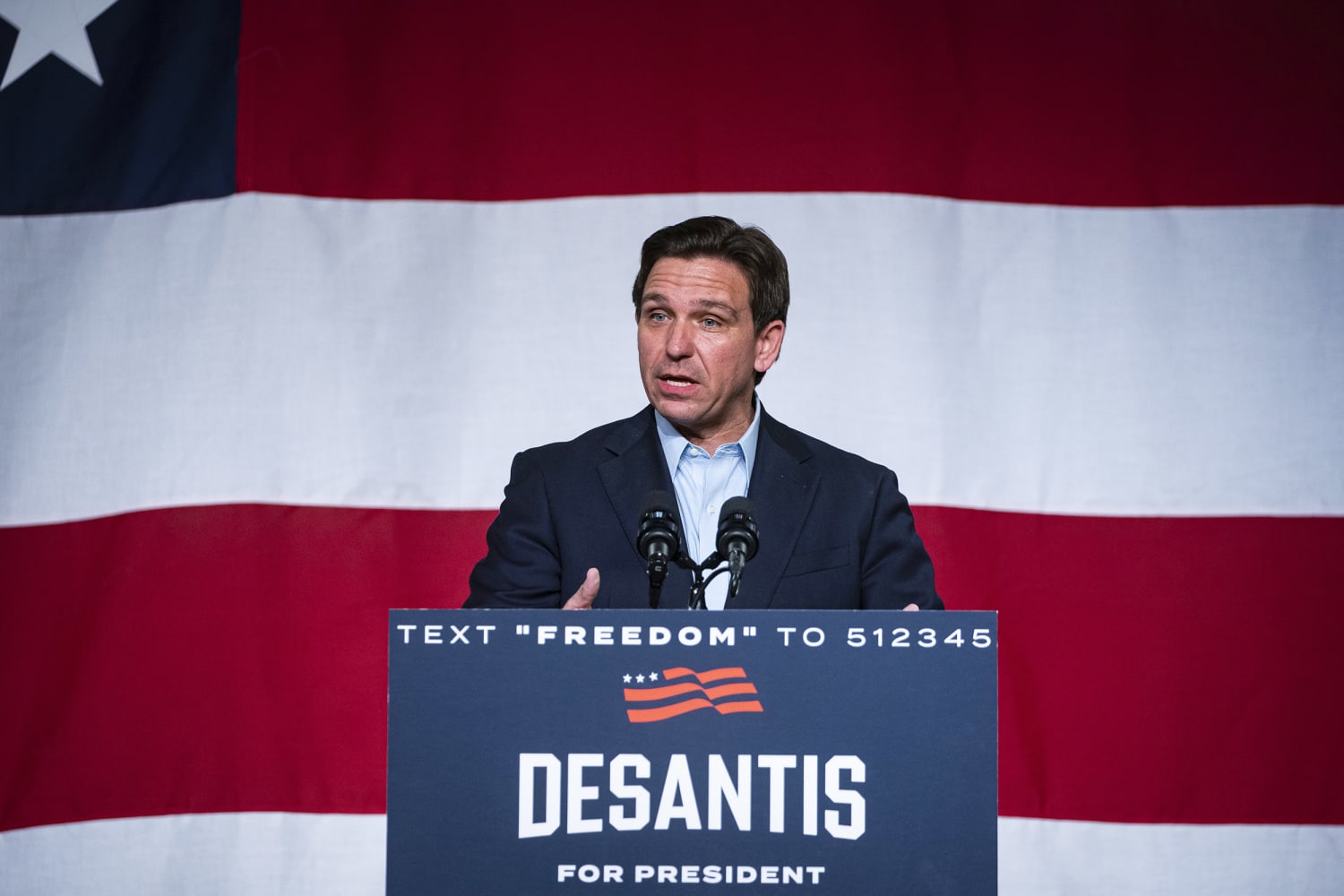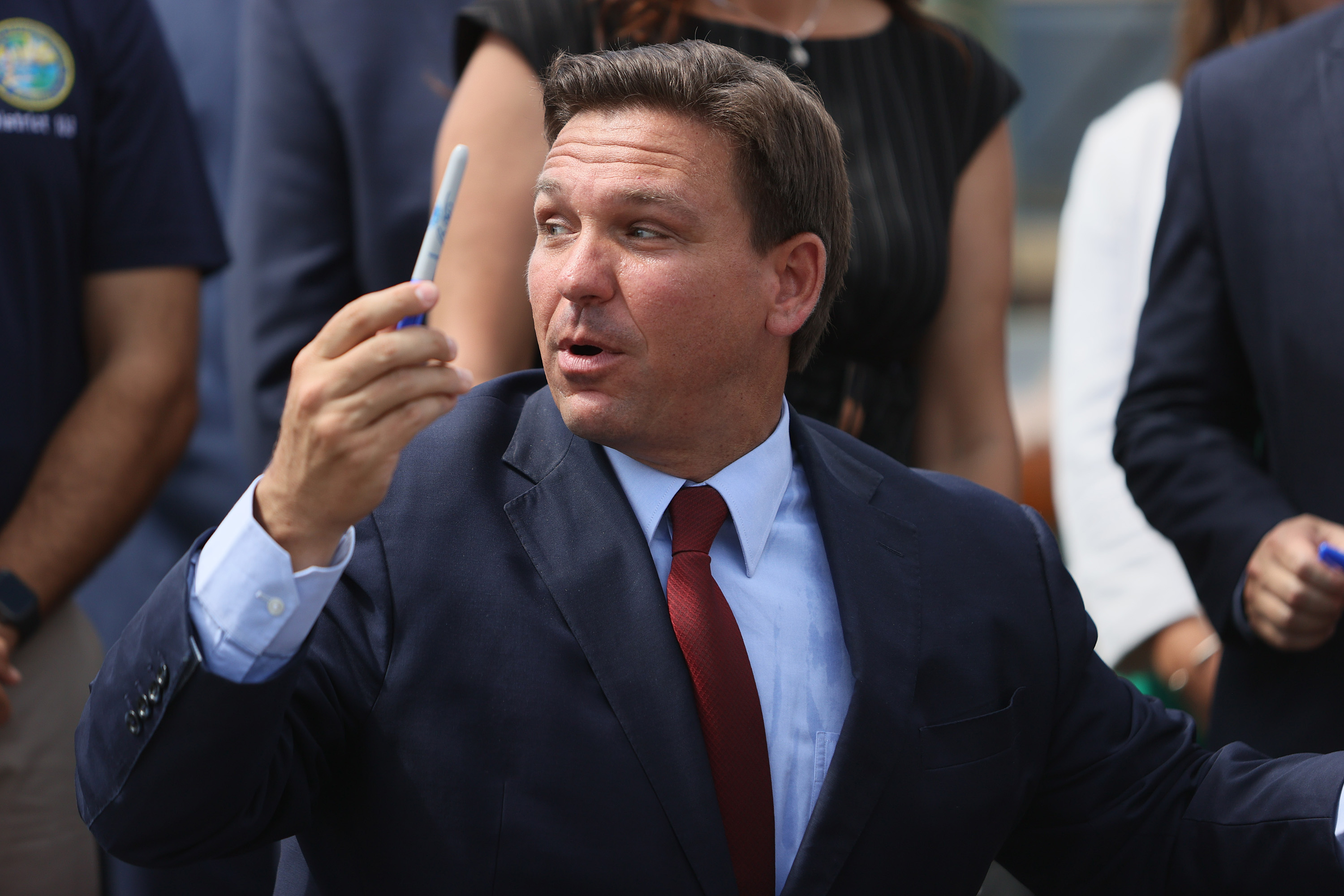Vetoes of Controversial Legislation: Desantis Vetoes

Desantis vetoes – Governor Ron DeSantis has vetoed several pieces of legislation that have been the subject of significant controversy. These vetoes have had a major impact on the affected parties and the state of Florida.
Parental Rights in Education Act
One of the most controversial pieces of legislation vetoed by DeSantis was the Parental Rights in Education Act, also known as the “Don’t Say Gay” bill. This bill would have prohibited classroom instruction on sexual orientation and gender identity in kindergarten through third grade, and would have required schools to notify parents if their child was receiving counseling on these topics. DeSantis vetoed the bill, stating that it was “unnecessary” and “harmful to students.” The veto was met with both praise and criticism, with some arguing that it was necessary to protect children from inappropriate content, while others argued that it was discriminatory and would harm LGBTQ+ students.
The recent DeSantis vetoes have sparked discussions surrounding financial aid for individuals with disabilities. While the focus remains on the implications of these vetoes, it’s crucial to highlight the availability of resources like ssi ssdi va stimulus check for those in need.
These programs provide essential support to ensure financial stability for individuals facing challenges. As the debate on DeSantis vetoes continues, it’s imperative to recognize the significance of financial assistance for those who rely on it.
Congressional Redistricting Plan
DeSantis also vetoed a congressional redistricting plan that had been passed by the Florida Legislature. The plan would have created a new congressional district that would have been heavily Republican, and would have likely resulted in the election of an additional Republican congressman from Florida. DeSantis vetoed the plan, stating that it was “unconstitutional” and “unfair.” The veto was met with criticism from Republicans, who argued that it was a partisan move by DeSantis to prevent the election of more Republicans to Congress.
Election Integrity Act
DeSantis also vetoed an election integrity act that would have made it more difficult to vote by mail in Florida. The bill would have required voters to provide a photo ID when requesting a mail-in ballot, and would have limited the number of drop boxes where voters could return their ballots. DeSantis vetoed the bill, stating that it was “unnecessary” and would have made it more difficult for people to vote. The veto was met with criticism from Republicans, who argued that it was necessary to prevent voter fraud.
Conclusion
The vetoes of these controversial pieces of legislation have had a major impact on the affected parties and the state of Florida. The vetoes have been met with both praise and criticism, and are likely to continue to be debated in the months and years to come.
Political Implications of Vetoes

Governor DeSantis’s vetoes have sparked political debate and analysis, with varying interpretations of his motivations and the potential consequences for his political career and the Republican Party in Florida.
Motivations for Vetoes, Desantis vetoes
DeSantis’s vetoes have been attributed to several factors, including his conservative ideology, desire to assert executive authority, and political calculations. His conservative views align with the Republican base in Florida, and his vetoes have been seen as a way to solidify his support among these voters.
Reactions to Vetoes
The vetoes have been met with mixed reactions. Republican lawmakers have generally supported DeSantis’s actions, while Democrats and progressive groups have criticized them. Interest groups representing affected communities have also voiced their concerns, particularly regarding the veto of the congressional redistricting map.
Impact on DeSantis’s Career
The vetoes have the potential to impact DeSantis’s political career in several ways. They could boost his popularity among conservative voters, but they could also alienate moderate and independent voters. The long-term effects on his political trajectory remain to be seen.
Impact on the Republican Party
The vetoes could also have implications for the Republican Party in Florida. By aligning himself with the conservative base, DeSantis may be appealing to a narrower segment of the electorate. This could make it more challenging for the party to win statewide elections in the future.
Legal Challenges to Vetoes

DeSantis’s vetoes have faced several legal challenges, with plaintiffs arguing that the governor exceeded his authority or violated the state constitution. The defendants, including the state of Florida and DeSantis himself, contend that the vetoes were lawful and within the governor’s discretion.
One of the most significant legal challenges to DeSantis’s vetoes was filed by the Florida Education Association (FEA) in 2022. The FEA argued that DeSantis’s veto of a bill that would have allowed teachers to discuss LGBTQ+ issues in schools was unconstitutional because it violated the First Amendment rights of teachers and students.
The state of Florida argued that the governor’s veto was lawful because the bill would have violated the state’s Parental Rights in Education Act, which prohibits schools from teaching about sexual orientation or gender identity in kindergarten through third grade.
The outcome of the FEA’s lawsuit is still pending, but it could have significant implications for the authority of the governor to veto legislation. If the court rules in favor of the FEA, it could limit the governor’s ability to veto bills that he or she disagrees with on ideological grounds.
Other Legal Challenges
In addition to the FEA’s lawsuit, several other legal challenges have been filed against DeSantis’s vetoes. These challenges include:
- A lawsuit filed by a group of voters who argue that DeSantis’s veto of a bill that would have expanded voting rights was unconstitutional.
- A lawsuit filed by a group of environmental groups who argue that DeSantis’s veto of a bill that would have protected water quality was unlawful.
- A lawsuit filed by a group of parents who argue that DeSantis’s veto of a bill that would have provided funding for school mental health services was unconstitutional.
The outcomes of these lawsuits are still pending, but they could have significant implications for the authority of the governor to veto legislation.